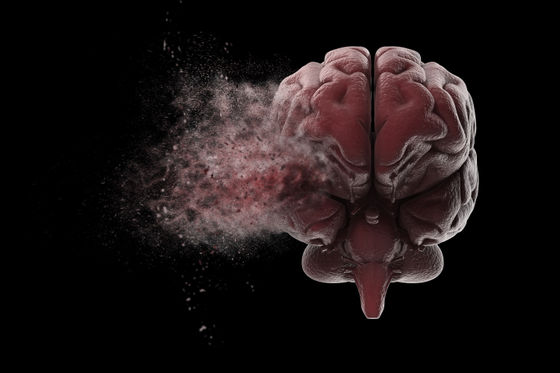A unique case of a patient who developed Alzheimer's disease at the age of 19, the youngest in history, with no known genetic mutation

Although Alzheimer's disease is generally considered to be a disease of the elderly, there is also
A 19-Year-Old Adolescent with Probable Alzheimer's Disease 1 - IOS Press
https://content.iospress.com/articles/journal-of-alzheimers-disease/jad221065
Chinese diagnosis of the world's youngest person with probable Alzheimer's set to change thinking about disease | South China Morning Post
https://www.scmp.com/news/china/science/article/3209607/chinese-diagnosis-worlds-youngest-person-probable-alzheimers-set-change-thinking-about-disease
The Mysterious Case of The Youngest Person Ever Diagnosed With Alzheimer's : ScienceAlert
https://www.sciencealert.com/the-mysterious-case-of-the-youngest-person-ever-diagnosed-with-alzheimers
In January 2023, doctors from the Department of Neurosurgery, Xuanwu Hospital, Capital Medical University, China, reported in the medical journal Journal of Alzheimer's Disease the case of a 19-year-old man who was diagnosed with possible Alzheimer's disease.
Two years before he visited the hospital, around the age of 17, the man began suffering from memory loss and was unable to concentrate on his school lessons. He also had difficulty reading and his memory deteriorated, making it difficult for him to remember what happened the previous day or where his belongings were.

The man's symptoms worsened over the years, and he was forced to drop out of high school because he frequently lost things and could not remember whether he had eaten or not.
Tests showed that the men's overall memory scores were 82% lower than their peers, and their short-term memory scores were 87% lower. One year after visiting the hospital, patients lose the ability to 'immediate recall' to remember what happened just before, 'short-term delayed recall' to remember what happened 3 minutes ago, and 'long-term delayed recall' to remember what happened 30 minutes ago. It's gone.
In addition, brain scans showed atrophy of the hippocampus, which controls memory, and cerebrospinal fluid tests showed increased levels of phosphorylated tau protein (p-tau181), a marker typical of patients with this type of dementia. , the man was diagnosed with a high possibility of Alzheimer's disease because a decrease in the amyloid β42/40 ratio was detected.
Young-onset Alzheimer's disease, in which patients under the age of 65 exhibit symptoms of Alzheimer's disease, accounts for 10% of all cases, but most of the very young patients under the age of 30 are classified as

Generally, the younger you are when you are diagnosed with Alzheimer's disease, the stronger the genetic influence is, and the youngest Alzheimer's patient ever recorded was a 21-year-old with a genetic mutation.
However, in this case, in which the patient was diagnosed with Alzheimer's disease at the age of 19, analysis of the patient's genome did not reveal the usual familial Alzheimer's disease genetic mutations or any other suspicious genetic mutations.
Given the discovery of Alzheimer's disease with a different background, the authors of the paper said, ``This study changes the world's conventional wisdom regarding the typical age of onset of Alzheimer's disease, and suggests that Alzheimer's disease is a disease of the elderly.'' 'This overturns the traditional view that early-onset Alzheimer's disease is a disease of the brain. Solving the mysteries of early-onset Alzheimer's disease may be one of the greatest scientific challenges of the future.'
Related Posts:
in Science, Posted by log1l_ks







